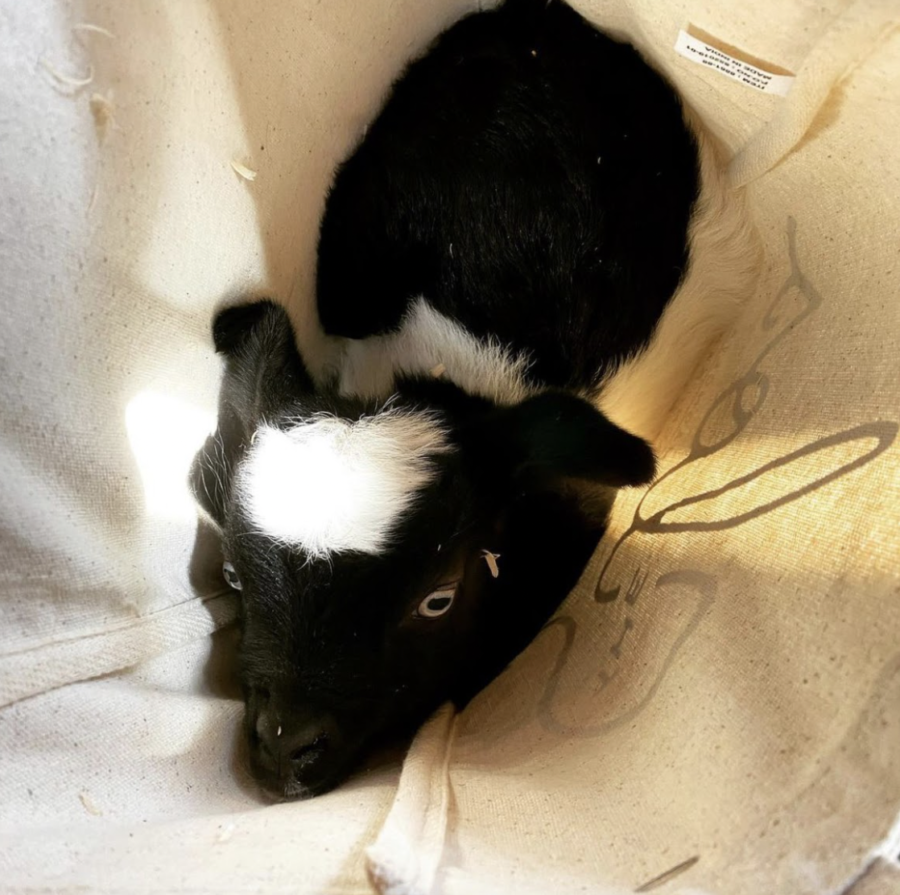Are you kidding me: it’s goat season
Ruth Bader Goatsburg in the tote sitting for a picture.
The touch of the soft fur, the smell of the fresh wood, the sound of the rooster crowing, the yelling of the goat. This is what many will experience when you go to a farm with new baby animals.
Hello, I’m Emerson Fraley and I will be talking about baby farm animals during the next few months. I have a family farm consisting of 14 fainting goats, 2 Nigerian dwarf goats, 2 rabbits, and lots of chickens. Around this time of the year, it’s breeding and birthing season.
My family owns a farm named Dallas Oaks Farm. Dallas Oaks Farm is located in the foothills of the Appalachians and Morehead Kentucky. They have goats, chickens, ducks, and rabbits, and are hoping to expand more. They started breeding myotonic goats in early 2020, and currently have 14 myotonic goats.
There are many types of animals but right now I will be focusing on the myotonic goat, also known as the fainting or meat goat. A myotonic goat has a recessive gene that makes its skeletal muscles lock up when the animal is startled, causing them to fall over for a short amount of time. The myotonic goat is heavily muscled and strong so when they faint it doesn’t hurt them.
A baby goat is classified as a kid. Within minutes of being born a kid is up and walking around. They usually get one pair of teeth per week so that means they have a full set of incisor teeth at 8 weeks, as they only have a bottom rack of teeth. They are almost fully developed when they are born so they can communicate with their mother. Fainting goats start to faint or stiffen up around one to two months old.
According to the American Breeds of Livestock Notebook, the American Livestock Breed Conservancy has placed this breed of goat on their “rare” list, with an estimated world population of under 10,000. They have now been discovered as excellent crossbreed stock for the Boer goat, a meat goat that was imported from South Africa. The “fainting” gene is recessive, therefore it is usually not expressed in crossbred animals.
Goats are excellent pets and animals for companionship, as fainting goats are rare. The recessive gene that makes them lock-up doesn’t hurt them. Fainting goats are great to have!
Your donation will support the student journalists of Highlands High School. Your contribution will allow us to cover our annual website hosting costs.



